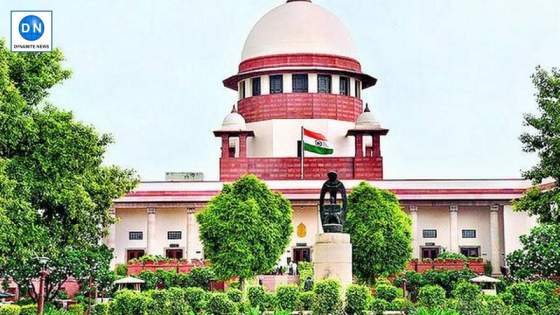Supreme Court scraps caste-based discrimination rules in prisons
The Top Court directed that the "caste" column and any references to caste in undertrial and/or convicts' prisoners' registers inside the prisons shall be deleted. Read further on Dynamite News:

New Delhi: The Supreme Court, in a pathbreaking judgement on Thursday, put an end to caste-based discrimination in prisons, calling it unconstitutional, and directed the Centre to make changes in jail manuals that perpetuate such practices.
The Top Court directed that the "caste" column and any references to caste in undertrial and/or convicts' prisoners' registers inside the prisons shall be deleted.
Violation of Article 15
A bench led by Chief Justice DY Chandrachud and also comprising justices JB Pardiwala and Manoj Misra said that the manual, which discriminates against prison by assigning cleaning and sweeping tasks to lower castes and cooking to higher castes, is in violation of Article 15.
The Supreme Court said such practices lead to unfair division of labour in the prisons and type of labour assignment based on caste, etc cannot be permitted.
SC issues directions to centre
Henceforth, the top court directed the Union government to make necessary changes, as highlighted in its judgement, to address caste-based discrimination in the Model Prison Manual 2016 and the Model Prisons and Correctional Services Act 2023 within a period of three months.
Also Read |
Supreme Court notice to Centre, States on plea to curb caste-based discrimination in prisons
"We need an institutional approach where people from marginalised communities could share their pain and anguish about their future collectively. We need to reflect and do away with institutional practices that discriminate against citizens from marginalised communities or treat them without empathy.
We need to identify systemic discrimination in all spaces by observing patterns of exclusion. After all, the "bounds of caste are made of steel"--"Sometimes invisible but almost always inextricable." But not so strong that they cannot be broken with the power of the Constitution," the top court said.
The court also directed the Union government to circulate a copy of this judgement to the Chief Secretaries of all States and Union territories within a period of three weeks from the date of delivery of this judgement.
The top court also issued many other directions. One among them was declaring references to habitual offenders in manuals as unconstitutional.
"References to "habitual offenders" in the prison manuals/Model Prison Manual shall be in accordance with the definition provided in the habitual offender legislation enacted by the respective state legislatures, subject to any constitutional challenge against such legislation in the future. All other references or definitions of "habitual offenders" in the impugned prison manuals/rules are declared unconstitutional. In case, there is no habitual offender legislation in the The state, the union, and the state governments are directed to make necessary changes in the manuals/rules in line with this judgement within a period of three months," the top court said.
Also Read |
Govt clears elevation of Justice K M Joseph to SC
"The impugned provisions are declared unconstitutional for being violative of Articles 14, 15, 17, 21, and 23 of the Constitution. All States and Union Territories are directed to revise their prison manuals and rules in accordance with this judgement within a period of three months," the order copy said.
Court takes suo motu cognisance
The Court also took suo motu cognisance of the discrimination inside prisons on any ground such as caste, gender, or disability, and shall list the case from now onwards as In Re: Discrimination Inside Prisons in India. The top court directed the Registry to list the case after a period of three months before an appropriate Bench. The top court asked all states and the Union government to file a compliance report on this judgement.
The DLSAs and the Board of Visitors formed under the Model Prison Manual 2016 shall jointly conduct regular inspections to identify whether caste-based discrimination or similar discriminatory practices exist, the top court said. (with Agency inputs)
 Dynamite News
Dynamite News 